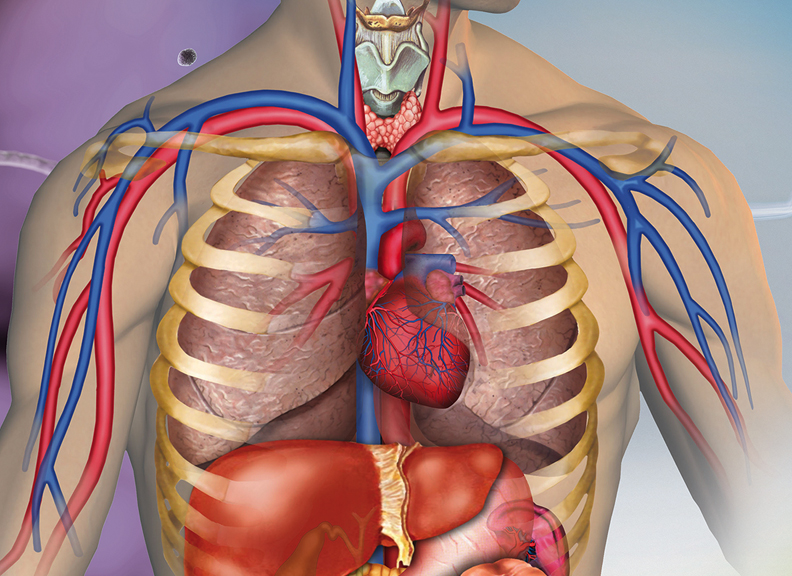PROJECT
Innate defense regulator (1018) peptide for immunomodulation and protection against sepsis in the preterm infant
Preventing adverse effects of infection and inflammation in the premature infant
Susceptibility to infection resulting in sepsis and adverse pro-inflammatory responses remain the critical determinants of adverse preterm infant outcomes, including for growth and development of the gut, lung and brain.
A new immunomodulatory and antimicrobial therapeutic approach using innate defence regulators (synthetic peptides based on natural host defence peptides) may protect the premature infant from adverse consequences arising from antenatal and postnatal proinflammatory exposures such as chiorioamnionitis, sepsis, enteral feeds and mechhanical ventilation. As innate defence regulators are also antimicrobial, associated decreased need for traditional antibiotic treatments may reduce risk for antibiotic resistance, encourage more rapid grading to full enteral feeds and decrease need for invasive cannulation and the associated risk for sepsis.
We will evaluate a specific innate defence regulator peptide (IDR-1018) to ascertain how it alters the ontogeny of immune development, its efficacy in preventing development of late-onset sepsis after preterm delivery and its ability to protect the preterm subject from the adverse responses consequent to sepsis and contemporary postnatal care. Studies will use a preterm lamb model of natural late onset sepsis in a state of the art internationally collaborative facility (PICRU - preclinical intensive care research unit), based at UWA.
Study outcomes will include clinical and physiological variables, immune phenotype, inflammation and development of the brain, lung and intestinal tract using transcriptomics, protein and systems biology approach.
The project is fully funded by the NHMRC and will be overseen by world leading scientists in Western Australia and Canada. It will support multiple PhD, Masters and/or Honours students working across a range of project outcomes.
Project goals:
- Identify how IDR-1018 alters structural and functional preterm lamb outcomes in lung, gut and brain
- Determine how enteral IDR-1018 impacts local gastrointestinal and systemic immunophenotype using a systems biology approach.
Students working within an interdisciplinary international collaborative team will gain experience with anaesthesia, surgery and postnatal neonatal care in the unique state of the art Preclinical Intensive Care Research Unit.
Longitudinal and post-mortem tissue samples will be analysed using techniques as appropriate to their specific research question including ELISA, immunohistochemistry, in situ hybridization, single cell techniques, transcriptomics, proteomics, metabolomics, microbiomics and integrate their result using systems biology.
Suggested readings
- Hancock RE, Nijnik A, Philpott DJ. Modulating immunity as a therapy for bacterial infections. Nat Rev Microbiol 2012; 10(4): 243-54.
- Bolouri H, Savman K, Wang W, et al. Innate defense regulator peptide 1018 protects against perinatal brain injury. Ann Neurol 2014; 75(3): 395-410.
- Lee AH, Shannon CP, Amenyogbe N, et al. Dynamic molecular changes during the first week of human life follow a robust developmental trajectory. Nat Commun 2019; 10(1): 1092.
- Nguyen DN, Jiang P, Stensballe A, Bendixen E, Sangild PT, Chatterton DE. Bovine lactoferrin regulates cell survival, apoptosis and inflammation in intestinal epithelial cells and preterm pig intestine. J Proteomics 2016; 139: 95-102.
- Gibson MK, Crofts TS, Dantas G. Antibiotics and the developing infant gut microbiota and resistome. Curr Opin Microbiol 2015; 27: 51-6.
Research team leader: Professor Jane Pillow
I am an internationally renowned neonatologist and transdisciplinary clinician scientist, with broad interests across newborn health; I am in the School of Human Sciences at UWA, an NHMRC Investigator Fellow and an Honorary Research Fellow at Telethon Kids Institute. My extensive preclinical and clinical research program aims to prevent adverse outcomes of the premature lung, brain, lung, heart, gut and immune system in infants born prematurely through development and evaluation of interventions that improve development of multiple organ systems.
Funding and Collaborations
Funding
- Innate Defence Regulator Peptide for Protecting the Preterm Infant from Postnatal Sepsis NHMRC Ideas Grant 2020-2023 $1,279,715
- Reducing global mortality and severity of disease in newborn infants through innovation and holistic interventions NHMRC Investigator Grant 2021-2025 $2,060,520
External Collaborators
- Dr Amy Lee, Dr Emma De Jong, Dr Claus Christophersen (Curtin University), Dr Joel Gummer (Edith Cowan University), Prof Robert Hancock (University of British Columbia), Dr Andrew Currie (Murdoch University).
- We actively seek and encourage new collaborations that enhance the outcomes of our preclinical studies. Please contact [email protected] if you are interested in proposing a collaboration to undertake additional analyses for this project.
Volunteers
- Students interested in gaining research experience during undergraduate or postgraduate study are welcome to apply to be a volunteer research team member.
- Those volunteers showing a clear aptitude for the work may also be invited to take up a paid casual position as a PICRU lamb carer.
How to Apply
Check criteria
- To be accepted into the Doctor of Philosophy, an applicant must demonstrate they have sufficient background experience in independent supervised research to successfully complete, and provide evidence of English language proficiency
- Requirements specific to this project - Solid background and experience with microbial profiling, immunology or molecular/cellular biology, and data visualisation techniques are highly desirable.
Submit enquiry to research team leader
- Contact the research team leader by submitting an Expression of Interest form via the button below
- After you have discussed your project with the research team leader, contact [email protected] to proceed with your application
Scholarships
- Scholarships specific to this project
-
- RTP Scholarship
- Co-Funded UPA Scholarship
- Ad-hoc Scholarship
- Dean’s Excellence in Science Scholarship (not offered 2021)












